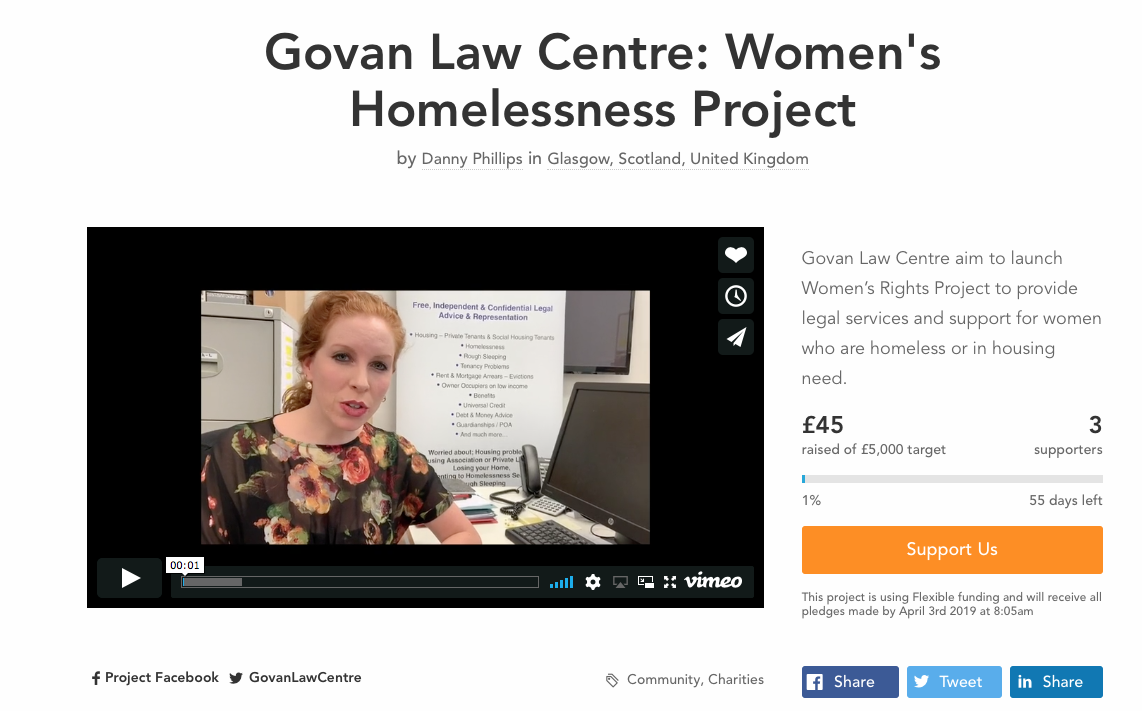 Govan Law Centre (GLC) is concerned that the OFT's Debt Collection Guidance is being routinely ignored in Scotland not only by UK debt purchasing companies but more worryingly by certain firms of Scottish solicitors who undertake debt collection as one of the primary activities of business.
Govan Law Centre (GLC) is concerned that the OFT's Debt Collection Guidance is being routinely ignored in Scotland not only by UK debt purchasing companies but more worryingly by certain firms of Scottish solicitors who undertake debt collection as one of the primary activities of business. Besides causing unnecessary human misery, unfair, oppressive, and disproportionate business practices are resulting in vulnerable Scottish homeowners being threatened with homelessness as creditors use inhibitions for tiny debts. The practice results in creditors being able to scupper Scottish Government mortgage to rent transactions, where families facing homelessness can have their house purchased by a social landlord.
GLC's Mike Dailly said:
"To give an illustration of the problem, we have a case in Glasgow where it has taken us many months to defend a repossession action and broker a complex mortgage to rent transaction, which is now being thwarted by a Scottish firm of solicitors acting on behalf of an English debt purchasing company for a debt of £810. Last month the company was prepared to accept repayment at £5 per week, but since obtaining an inhibition it wants all of the money as a lump sum".
"Our client is on incapacity benefit and has offered £100 plus £5 per week but the company's solicitors advise their client says no. We believe this Scottish law firm and company have engaged in aggressive, oppressive, and unfair practices contrary to the OFT's expected standards for consumer debt recovery, and contrary to section 25 of the 1974 Consumer Credit Act".
"Govan Law Centre is considering all legal remedies available to our clients against such companies and their Scottish solicitors - including where appropriate 'naming and shaming' - however, it is quite clear there is a major regulatory role here for the Law Society of Scotland which needs to be addressed, a need for the OFT to intervene, and ultimately a pressing need for the Scottish Government to review the ability of their own Mortgage to Rent scheme to be de-railed by unsecured creditors with relatively tiny debts through the inappropriate use of inhibitions".














